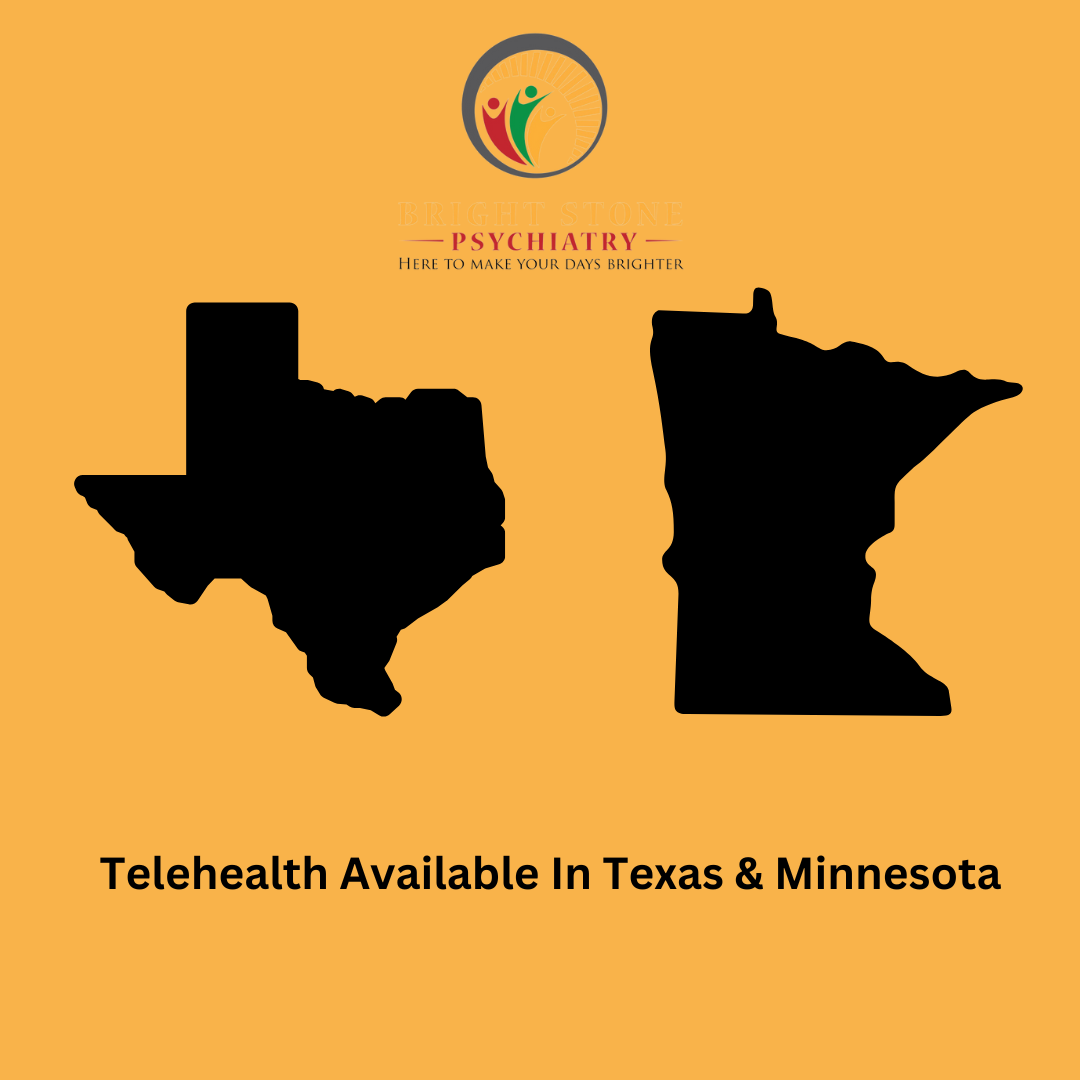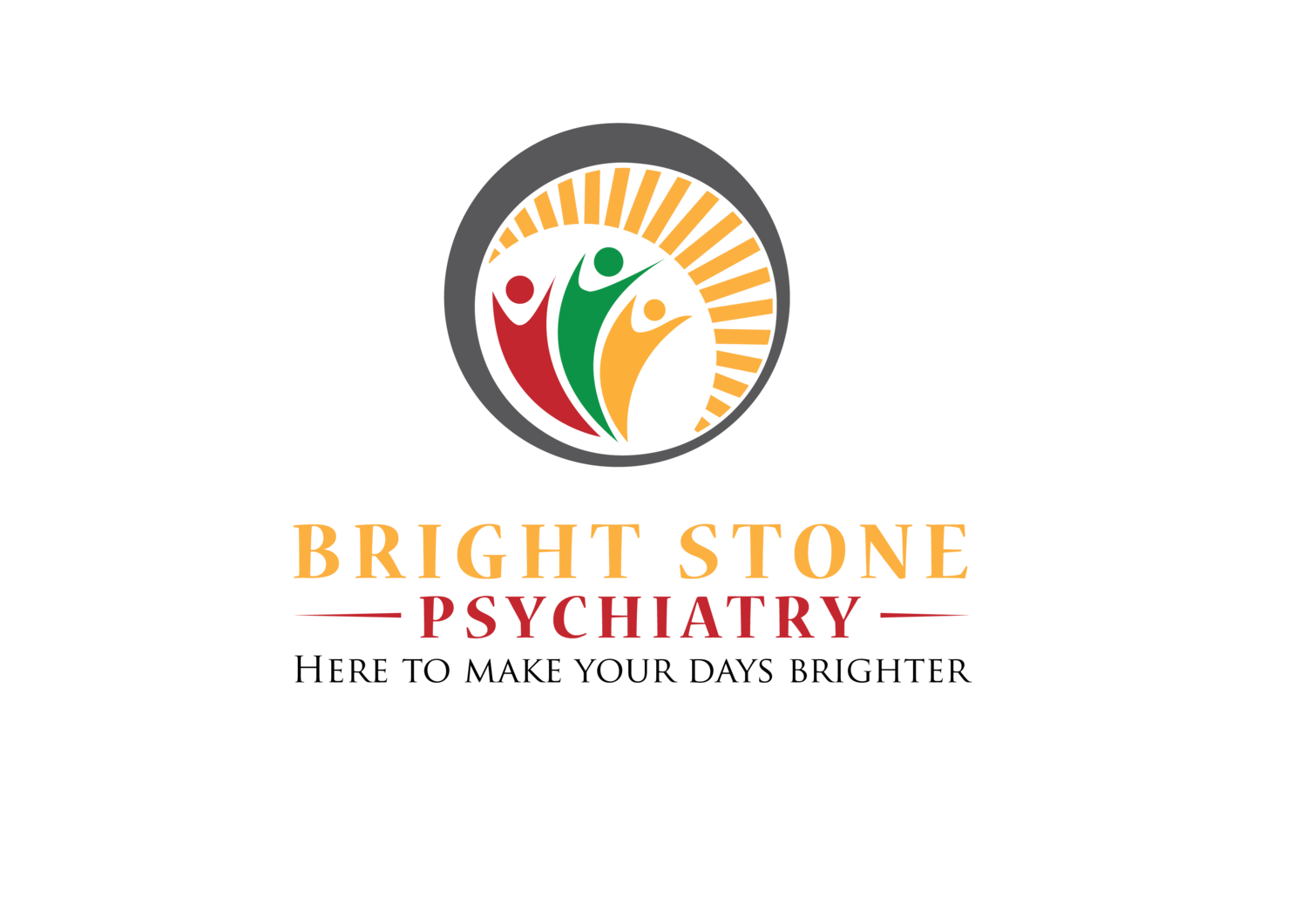
Telehealth Mental Health Appointments In Texas & Minnesota
Why Book A Telehealth Appointment
At Brightstone Psychiatry, we understand that seeking mental health support is a personal and sometimes challenging decision. That's why we offer telehealth mental health counseling to provide our clients with convenient, confidential, and accessible care. Telehealth therapy eliminates geographical and logistical barriers, allowing you to receive the support you need from the comfort of your home or a private space. This flexible approach ensures you can prioritize your mental well-being without the stress of travel or scheduling conflicts. Our telehealth services offer the same high-quality, compassionate care as in-person sessions, with the added convenience of connecting with our experienced mental health professionals via video or phone. Whether you're navigating anxiety, depression, or any other mental health challenge, telehealth counseling at Brightstone Psychiatry is designed to offer you the flexibility and privacy needed to start your healing journey with confidence.
Depression
Schizophrenia
Anxiety & Panic Disorder
Obsessive-Compulsive Disorder
Psychosis
ADHD
Medication Management
Bipolar Disorder
What We Treat



Depression
Depression is a mental health disorder characterized by persistent feelings of sadness, hopelessness, and a lack of interest in daily activities. It can affect one's ability to function, impacting work, relationships, and overall quality of life.
Schizophrenia
Schizophrenia is a severe mental health disorder that affects how a person thinks, feels, and behaves, often leading to symptoms such as hallucinations, delusions, and disorganized thinking. It can disrupt daily functioning and requires ongoing treatment to manage symptoms and improve quality of life.
Anxiety & Panic Disorder
Anxiety and panic disorder is a mental health condition characterized by intense, excessive worry or fear that can interfere with daily life. Individuals with this disorder may experience sudden panic attacks, physical symptoms such as a racing heart, and constant anxiety about potential future events.
Obsessive Compulsive Disorder
Obsessive-Compulsive Disorder (OCD) is a mental health condition marked by recurring, intrusive thoughts (obsessions) and repetitive behaviors or mental acts (compulsions) that individuals feel driven to perform. These compulsions are often aimed at reducing anxiety caused by the obsessions, but they can interfere significantly with daily life and well-being.
Medication Management
Medication management is the process of overseeing and coordinating the use of medications to ensure they are taken correctly, safely, and effectively. It involves monitoring dosages, side effects, interactions, and ensuring that patients adhere to prescribed treatment plans to achieve the best possible outcomes.
Psychosis
Psychosis is a mental health condition where a person experiences a disconnection from reality, often manifesting in symptoms like hallucinations, delusions, and disorganized thinking. It can affect a person's ability to think clearly, make decisions, and interact with others, requiring professional treatment and support.
ADHD
Attention-Deficit/Hyperactivity Disorder (ADHD) is a neurodevelopmental disorder characterized by persistent symptoms of inattention, impulsivity, and hyperactivity. These symptoms can impact daily functioning, affecting academic performance, relationships, and work, but can be managed with appropriate treatment and support.
Bipolar Disorder
Bipolar disorder is a mental health condition marked by extreme mood swings, including periods of intense mania or hypomania and episodes of deep depression. These mood fluctuations can disrupt daily functioning, requiring ongoing treatment to manage symptoms and maintain stability.
We Proudly Offer Telehealth Mental Health Services To Minneapolis, Saint Paul, Rochester, Duluth, Bloomington, Brooklyn Park, Plymouth, Eagan, Coon Rapids, Maple Grove, and the surrounding areas.
Book An Appointment By Calling 832-378-8282

